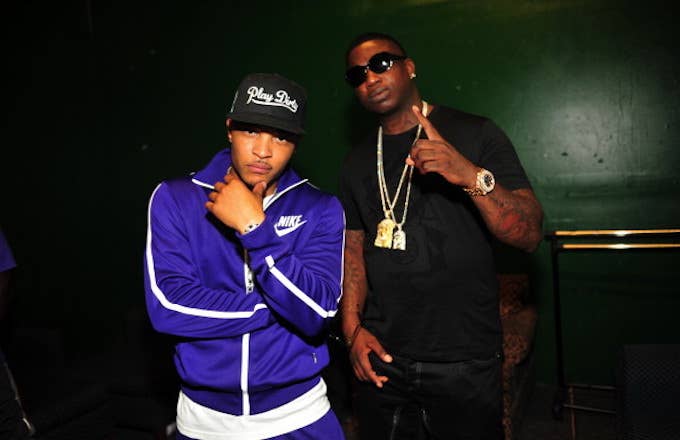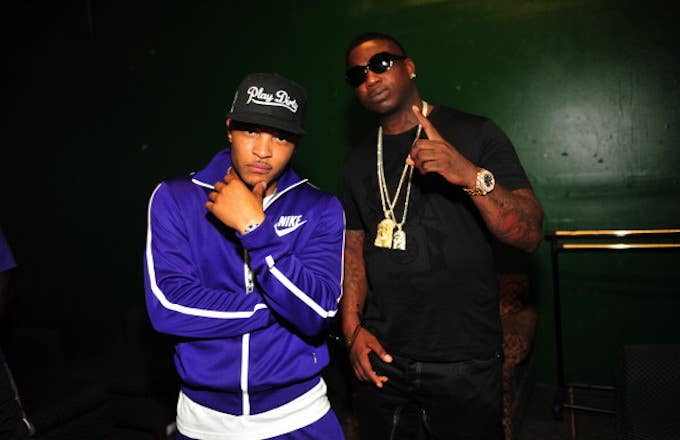
Recently, there was a very public back-and-forth between Gucci Mane and T.I. about who invented trap music. The blow-by-blow has been well-documented, and it’s started a very public debate—some of the exchanges are thoughtful and well-reasoned—about who really started the sound that rules the airwaves today.
The story of trap music is complicated. Hell, it took me 2,000 words, half a dozen interviews, and 35 years of history to even figure out how the music’s hi-hat patterns ended up influencing seemingly all the music we hear today.
But figuring out who started it is less complex. One thing a lot of these arguments overlook is that trap music is, well, trap music. That is, what makes it distinctive is not that its rappers talk about drugs (rappers have always talked about drugs—the very first rapper of any public note was Coke La Rock, and he wasn’t named after soda). Instead, it’s a musical style.
And there are plenty of influences on that style, from “Planet Rock” to the Memphis-based, dark and moody stylings of Three 6 Mafia, to the bass music that worked its way from Florida to Atlanta in the 1980s and early 90s.
But there’s one person who is most responsible for taking all of the elements of what would become known as trap music—the eerie synthesizers, the powerful 808 kicks, and the busy hi-hats—all together. And that person is Shawty Redd.
Shawty Redd was still a teenager when he met up with the rapper Drama to produce his debut album, Causin' Drama, which would come out in early 2000. Drama had very strong ideas about drum patterns—ideas he would express by pounding on his chest.
“When [Drama] came, he already had the music in his head, as far as drum patterns,” Shawty told me. “He would beat on his chest and rap. So I tried to put those elements into the music the best way I could, as far as the drum patterns.”
But those ideas were lacking a certain...something. So to keep the energy going, Shawty added one very special element.
“The beat still wasn’t moving to me like I wanted,” he explained. “That’s where the hi-hats came from. I never knew that it was going to be a trending thing. I just wanted something that would make me bounce. It was just, you got a slower beat, so why don’t you put some booty-shake hi-hats in there?”
And it was that—those “booty shake” hi-hats combined with the bass-heavy beats familiar to ATL-iens already, and some ominous Memphis-style synths—that created the sound that would take over the world.
While Drama’s subject matter may be pretty far away from the trap—it mostly centers around marching, for some reason—the beats will be instantly familiar to any trap fan.
Shawty Redd would shortly thereafter take his breakthrough sound to a rapper named Lil J, who a few years later would rename himself Young Jeezy, and become another key voice in the development of trap.
But what about T.I.? Well, there is no doubt that T.I.’s 2003 album Trap Muzik gave the burgeoning genre its name. And the sonic stew Shawty Redd pioneered quickly became ubiquitous—it shows up all over T.I.’s early work, courtesy mostly of DJ Toomp (who, not coincidentally, started his career producing for a record label owned by Miami bass icon Luther Campbell of 2 Live Crew). But T.I.’s first project, I’m Serious, came out in 2001, after Causin’ Drama. So the formula of synths, low kicks, and busy hi-hats was already in the air, and Toomp took it and gave it his own spin. But the first person to piece together Memphis, Atlanta, and Miami into the sound that dominates the charts to this day? Hats off to you, Shawty.


